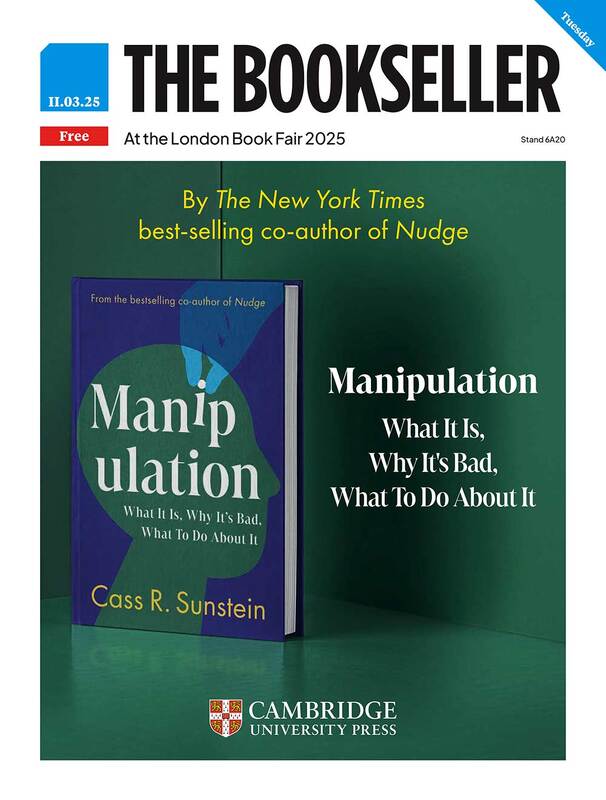You are viewing your 1 free article this month. Login to read more articles.
HarperCollins and Belton settle with Abramovich over Putin's People
HarperCollins and Catherine Belton have settled their dispute with Roman Abramovich over certain passages in Putin’s People (William Collins) about the reasons for the Russian billionaire’s purchase of Chelsea Football Club.
The publisher has amended the book "to record the position more accurately, and include additional comments from Mr Abramovich’s spokesperson" according to a statement on the settlement. HarperCollins and the book’s author Belton have also apologised that these aspects of the book "were not as clear as they would have liked them to have been and are happy to have now clarified the text". No damages are being paid, but the publisher has agreed to donate to a charitable organisation.
In November a high court judge ruled in a preliminary judgment that the claim Abramovich purchased Chelsea FC on Vladimir Putin’s orders was defamatory. In all, Mrs Justice Tipples ruled nine of the meanings in the 26 passages contested were defamatory against Abramovich.
A court case had been expected in 2022 but HarperCollins announced on 22nd December it had reached a settlement. It said: "While the book always included a denial that Mr Abramovich was acting under anybody’s direction when he purchased Chelsea, the new edition will include a more detailed explanation of Mr Abramovich’s motivations for buying the club. HarperCollins has also made clear in the book that there is no evidence, beyond the statements of the individuals themselves, supporting claims made to the author by Sergei Pugachev and two other unnamed individuals about the purchase of Chelsea Football Club."
In a separate libel claim brought forward by state-controlled oil giant Rosneft over the book, Justice Tipples found three of the four passages complained of did not bear a meaning defamatory to the company and therefore would not proceed. Days later Rosneft said it was discontinuing its remaining claim against HarperCollins over comments made in Putin’s People.
In July HarperCollins settled with Russian billionaires Pyotr Aven and Mikhail Fridman, who brought their own legal action against the publisher but not Belton herself and agreed to amend some passages in the book about them.
HarperCollins also said of this week’s settlement: "Statements in the book that Boris Berezovsky had in fact been an owner of Sibneft have been corrected to make clear that, although this was a widely held view in Russia, this was found to be untrue by a UK High Court following an extensive trial in 2012, which (as the book always noted) found Berezovsky to be an ‘inherently unreliable witness’. In recognition of this error, HarperCollins has agreed to make a payment to charity.
"The book has also been amended to make clear that Berezovsky was the public source of rumours regarding the splitting of proceeds from the sale of Sibneft and that this is not established fact."
HarperCollins said it was "pleased" that the dispute with Abramovich has been settled.
It said: "There is no one more qualified than Catherine Belton to document the workings of modern Russia. Miss Belton’s knowledge, tenacity and bravery and seven years of research have resulted in a highly regarded and critically acclaimed work. It is commonplace for books of this depth and scope to be amended as new information emerges, and both publisher and author are happy to reflect such changes in Putin’s People.
"As has been widely reported, in addition to the claim by Mr Abramovich, Putin’s People and Catherine Belton have been under attack from four other Russian oligarchs and the state-controlled oil giant Rosneft, all with vast resources at their disposal. Each of those claims has been resolved with no damages or costs payable by HarperCollins.
"HarperCollins is committed to publishing high quality investigative non-fiction and to defending free speech. It supports calls made by organisations such as Index on Censorship, English PEN and the Foreign Policy Centre to resist the use of SLAPP (strategic lawsuit against public participation) lawsuits through the English legal system that quell freedom of speech and deter others from publishing material in the public interest."
Belton tweeted after the announcement: "This last year has felt like a war of attrition in which HarperCollins and I have been bombarded from all sides with lawsuits from four Russian billionaires and the Kremlin’s oil champion Rosneft." She added: "Throughout, HarperCollins has staunchly defended the book. I could not have wished for a better or braver publisher more committed to public interest journalism".
A spokesperson for Abramovich said he was "pleased" HarperCollins and the author had apologised and agreed to amend the book "removing several false claims”. The spokesperson said: "These statements lacked evidence and were indeed false. This follows the English High Court’s determination that the book did indeed include several defamatory claims about Mr Abramovich. In total, amendments resulting in the deletion or addition of over 1,700 words have been agreed.
"As Mr Abramovich stated when issuing his claim earlier this year, its sole purpose was to refute the false allegations published regarding his name and have them corrected, including the false statements made about the nature of the purchase and activities of Chelsea Football Club.
"In contrast to events relayed in the book, Mr Abramovich’s ambition with Chelsea Football Club has always been clear and transparent: to create world-class teams on the pitch and to ensure the club plays a positive role in all of its communities. The Club’s successes and activities over the years speak for themselves, including the trophies won, expansion of the Chelsea Academy, development of the Women’s team, and the Chelsea Foundation becoming the largest charitable organisation within the Premier League.
"We are pleased that today’s changes and the resulting apology address the false allegations made on this subject and look forward to further developing Chelsea’s many positive initiatives in the UK, most notably our programmes combatting antisemitism and racism."
They added: "There has unfortunately been some misreporting about the nature of this legal claim. This book was published, for profit, by one of the world’s largest publishing houses. Publishing false, sensational, or defamatory statements about a public person in the pursuit of sales is wrong. HarperCollins should be, and now have been, held to reasonable publishing standards and have ample financial resources to withstand a well-founded legal claim that seeks to correct the record.
"As the objectives of this legal claim have never been punitive, we have not asked for any damages to be paid. We have, however, asked that HarperCollins makes a donationin lieu of damages to a charitable organization, to which they have agreed."
















